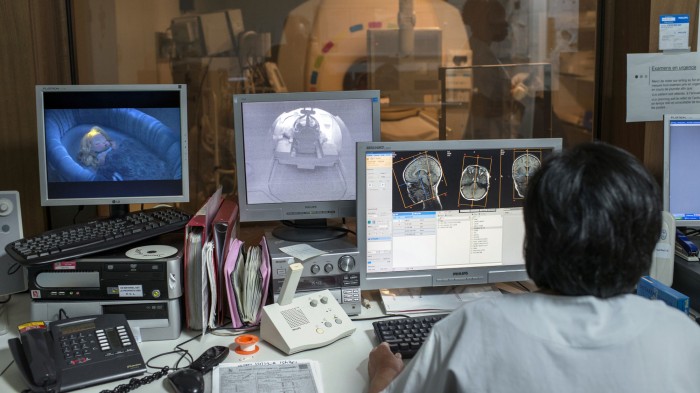How Machine Learning May Help Tackle Depression

Depression is a simple-sounding condition with complex origins that aren't fully understood. Now, machine learning may enable scientists to unpick some of its mysteries in order to provide better treatment.
For patients to be diagnosed with Major Depressive Disorder, which is thought to be the result of a blend of genetic, environmental, and psychological factors, they have to display several of a long list of symptoms, such as fatigue or lack of concentration. Once diagnosed, they may receive cognitive behavioral therapy or medication to help ease their condition. But not every treatment works for every patient, as symptoms can vary widely.
Recently, many artificial intelligence researchers have begun to develop ways to apply machine learning to medical situations. Such approaches are able to spot trends and details across huge data sets that humans would never be able to, teasing out results that can be used to diagnose other patients. The New Yorker recently ran a particularly interesting essay about using the technique to make diagnoses from medical scans.
Similar approaches are being used to shed light on depression. A study published in Psychiatry Research earlier this year showed that MRI scans can be analyzed by machine-learning algorithms to establish the likelihood of someone suffering from the condition. By identifying subtle differences in scans of people who were and were not sufferers, the team found that they were able to identify which unseen patients were suffering with major depressive disorder from MRI scans with roughly 75 percent accuracy.
Perhaps more interestingly, Vox reports that researchers from Weill Cornell Medical College are following a similar tack to identify different types of depression. By having machine-learning algorithms interrogate data captured when the brain is in a resting state, the scientists have been able to categorize four different subtypes of the condition that manifest as different mixtures of anxiety and lack of pleasure.
Not all attempts to infer such fine-grained diagnoses from MRI scans have been successful in the past, of course. But the use of AI does provide much better odds of spotting a signal than when individual doctors pore over scans. At the very least, the experiments lend weight to the notion that there are different types of depression.
The approach could be just one part of a broader effort to use machine learning to spot subtle clues related to the condition. Researchers at New York University's Langone Medical Center, for instance, are using machine-learning techniques to pick out vocal patterns that are particular to people with depression, as well as conditions like PTSD.
And the idea that there may be many types of depression could prove useful, according to Vox. It notes another recent study carried out by researchers at Emory University that found that machine learning was able to identify different patterns of brain activity in fMRI scans that correlated with the effectiveness of different forms of treatment.
In other words, it may be possible not just to use AI to identify unique types of depression, but also to establish how best to treat them. Such approaches are still a long way from providing clinically relevant results, but they do show that it may be possible to identify better ways to help sufferers in the future.
In the meantime, some researchers are also trying to develop AIs to ensure that depression doesn’t lead to tragic outcomes like self-harm or suicide. Last month, for instance, Wired reported that scientists at Florida State University had developed machine-learning software that analyzes patterns in health records to flag patients that may be at risk of suicidal thoughts. And Facebook claims it can do something similar by analyzing user content—but it remains to be seen how effective its interventions might be.
(Read more: Vox, Wired, New Yorker, ”Big Questions Around Facebook’s Suicide-Prevention Tools,” “Voice Analysis Tech Could Diagnose Disease”)
Keep Reading
Most Popular
Large language models can do jaw-dropping things. But nobody knows exactly why.
And that's a problem. Figuring it out is one of the biggest scientific puzzles of our time and a crucial step towards controlling more powerful future models.
How scientists traced a mysterious covid case back to six toilets
When wastewater surveillance turns into a hunt for a single infected individual, the ethics get tricky.
The problem with plug-in hybrids? Their drivers.
Plug-in hybrids are often sold as a transition to EVs, but new data from Europe shows we’re still underestimating the emissions they produce.
Stay connected
Get the latest updates from
MIT Technology Review
Discover special offers, top stories, upcoming events, and more.